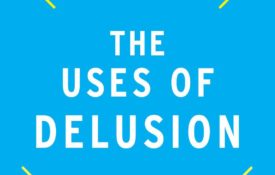-
In Praise of Anxiety
Nobody likes to feel anxious. Anxiety is among the most pervasive and reviled of human emotions. An entire industry has sprung up to aid us in eradicating it, from self-help books and holistic remedies to pharmaceuticals and cutting-edge cognitive behavioral therapy. Yet we are an ever more profoundly anxious society. Epidemiological studies show that over 100 million people in the U.S. will suffer from an anxiety disorder in their lifetime. Rates, especially among the young, have been rising for the past decade. Our efforts to contain anxiety aren’t working.
-

Wendy Wood Elected Incoming APS President-Elect
Wendy Wood, provost professor of psychology and business at the University of Southern California, has been elected President-Elect of the Association for Psychological Science.
-
How to Make Self-Affirmation Work, Based on Science
For fans of “Saturday Night Live,” the word affirmation probably triggers memories of a character popular in the 1990s: Stuart Smalley.
-
Why Mind Wandering Can Be Actually Good For You
Whether it's thinking about your goals, running future scenarios, replaying old memories or simply wondering what you'd have for dinner tonight—science shows that mind wandering accounts for more than 45% of your waking hours every day. Mind wandering can serve many purposes for people, including relief from boredom, exploration of the imagination and distraction from unpleasant or harmful thoughts and images, says Dr. Chanda Reynolds, a licensed clinical psychologist based in Washington. Although it may seem counterproductive to spend nearly half of the time you're awake with your head in the clouds, experts say otherwise.
-

Delusion and the Uses of Not Being Rational
APS Fellow and Charter Member Stuart Vyse, talks about his new book “The Uses of Delusion: Why It’s Not Always Rational to Be Rational.”
-

New Content From Current Directions in Psychological Science
A sample of articles on computational models and psychological measurement, clinical applications of digital technologies, infants’ everyday experiences, trajectories of anxiety and depression, language acquisition, a new way of studying psychopathology, group-based control, binocular rivalry, and aging and digital technology use.

